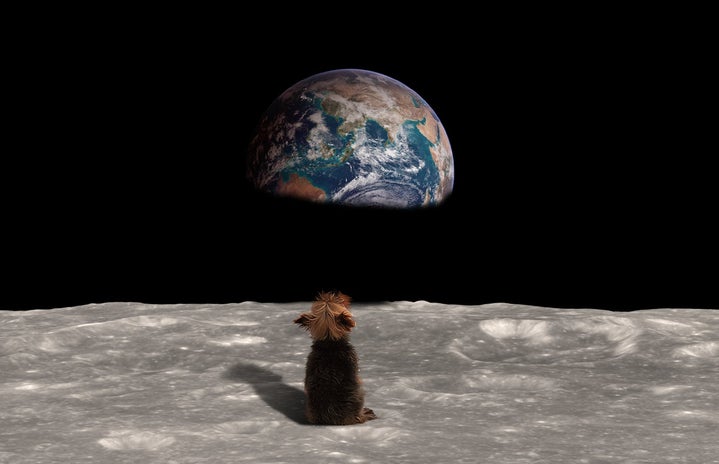Upon watching a YouTube documentary, Out of Shadows, a terrifying exploration of how the government essentially manipulates and brainwashes the public through the media, I began thinking about the concept of conspiracies. Apparently, the concept of conspiracy theories and subsequent explosion of pop culture began with rumors regarding President John F. Kennedy’s assassination.
Personally, this stuck with me as I had a point in my life where I was slightly obsessed with JFK’s assassination. It was to a point where I did my whole National History Day project about it; an entire section covered the controversies and conspiracies surrounding this dreadful moment of history. In modern times, especially with social media, it’s easy for misinformation and conspiracies to run wild. Here’s how conspiracy theories became iconic to American culture, for better or worst.
So, what exactly is a conspiracy theory?
According to Dictionary.com, a conspiracy is “an evil, unlawful, treacherous, or surreptitious formulated in secret by two or more persons.” In short, a conspiracy is a secret plot that winds up doing some type of harm upon a person, idea, or event. A conspiracy theory is speculation that a secret plot to confuse and lie to the public had actually occurred.
How conspiracies became a staple of pop culture
According to Literary Hub, conspiracies as we know them today began about 200 years ago when the United States was less than 10 years old. New England religious leaders spoke out about the Illuminati’s plan to destroy the emerging country.
Another example of an early conspiracy would be when the emperor of Austria had supposedly orchestrated a plot to flood America with Catholics in order to undermine the world’s greatest Protestant republic. People found out about this conspiracy mostly due to Samuel Morse’s warning – the same Samuel Morse who invented the Telegraph.
By World War I, conspiracies had become a staple within American culture.
What Exactly is Conspiracism?
According to Literary Hub, conspiracism is a belief system that leads people to look for and anticipate conspiracies. Conspiracism has grown in the latest years, especially with social media. It ranges from those with conspiratorial rage, like radio host Alex Jones, to regular people who refuse their children immunizations due to vague claims that vaccines cause neurodevelopmental issues and brain injury.
Problems with Conspiracy Theories
One problem with conspiracy theorists is the great lengths they go to find speculation in perfectly normal circumstances, purely to stir trouble. For example, creating recommendations for sustainable growth at the 1992 Rio Earth Summit was meant to be routine. Many conspiracy theorists believed the annual UN event was actually a work of “global Communism,” and a sinister plot to have most of the world’s population murdered by abortion, famine, disease, wars, vaccines, and medicines that cause a slow, painful death. The 90’s also saw great speculation with concerns that the contrails of jet planes were actually chemtrails laced with various chemicals by the government in order to “poison or stupefy” its own citizens. 21st century conspiracies claim that birds aren’t actually living, breathing animals, and that they are actually robotic recording devices.
Another issue with conspiracism is the fact that its definition in academic literature is too broad. According to Matthew R. X Dentith of the University of Bucharest, concerns of seemingly weird conspiracy theorists tell us little about the merits of their conspiracy theories. There are two issues that come with that: one being whether or not the belief in a conspiracy theory is warranted; two being whether some theorists believe theories regardless of the evidence.
Conspiracism can also lead people to essentially be obsessed with said conspiracy theories. Conspiracists seem to be more in tune with their belief system than the regular and they constantly apply to events on a regular basis. Conspiracism can inherently be negative. Conspiracists can fear the theories they envision as they can destroy their way of life. These theories allow for disruption for the way they are used to living.
Origins with the CIA
It’s quite ironic that the origins of the term itself come from a conspiracy theory. This conspiracy theory claims that the CIA coined the term in 1967 in order to debunk any questions about their official report of John F. Kennedy’s assassination. People also believe that Kennedy’s killer, Lee Harvey Oswald, didn’t act alone.
A more extreme version of the conspiracy states that the CIA invented the term in the sense that the words “conspiracy” and “theory” were put together. A more moderate version claims that the term had already existed, the CIA just gave it its negative connotation as a tool of propaganda.
Both versions of the conspiracies point to the official CIA document, Concerning Criticism of the Warren Report. It was released in 1976 by the New York Times under the Freedom of Information Act. As one can assume, the document speaks to people’s skepticism of the conclusion of the Warren Commission, which stated that Oswald had acted alone. According to The Conversation, “conspiracy theories have frequently thrown suspicion on our organization, for example, by falsely alleging that Lee Harvey Oswald worked for us.”The author’s casual drop of the term and felt no need to define it. It’s an indicator that the term had already been used widely to describe alternative events. And just like that, the term was used to describe alternative explanations of Kennedy’s assassination.



